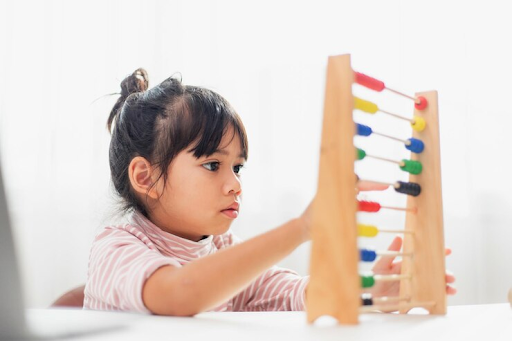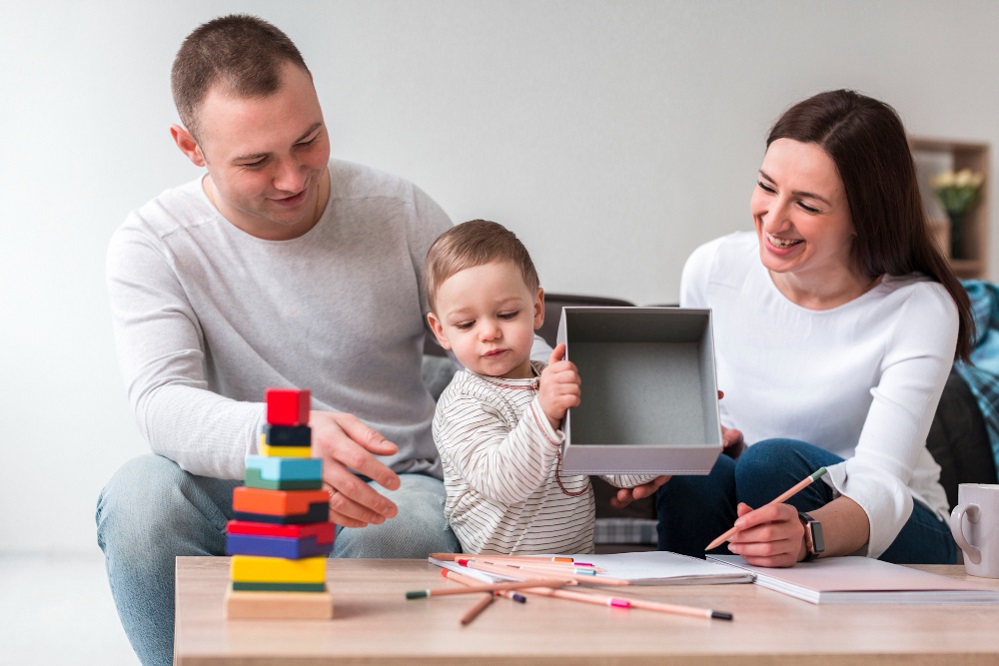Introduction
Children are naturally inclined to play, and for good reason. Play is not only enjoyable for kids, but it also serves as a vital tool for their development and growth. It’s through play that children learn about the world around them, develop essential skills, and build social and emotional bonds. In this comprehensive guide, we’ll explore the various types of play and the significant benefits they offer for a baby development.
Importance of Play in a Child’s Life
Play is of paramount importance in a child’s life as it serves as a multifaceted tool for their holistic development. Through play, children explore their surroundings, cultivate creativity, and build critical life skills. It is the foundation upon which they learn to solve problems, develop language and social skills, and understand complex concepts. Play fosters emotional growth by teaching empathy, cooperation, and conflict resolution. Moreover, physical play promotes a healthy lifestyle and enhances gross motor skills. Overall, play is not just a pastime; it’s the means through which children build the foundation for their future success and well-being, making it an indispensable aspect of their early years.

The Role of Play in Development and Growth
Play serves as a catalyst for multifaceted development and growth in children:
- Cognitive Development: Play stimulates a child’s cognitive abilities by encouraging problem-solving, decision-making, and memory retention. Activities like puzzles and educational games enhance their cognitive skills.
- Emotional Development: Through play, children learn to express and manage their emotions. Imaginative play, in particular, allows them to explore complex feelings and develop emotional intelligence.
- Social Development: Play offers opportunities for children to interact with peers and adults. It helps them develop crucial social skills such as cooperation, empathy, and communication, which are essential for forming relationships.
- Language Development: Play encourages the use of language for communication, helping children expand their vocabulary and refine their language skills. Storytelling, role-playing, and group play contribute to language development.
List of 10 Types Of Play For Child Development And Growth:
1. Physical Play
Physical play involves activities that get kids moving, using their bodies, and expending energy. This type of play includes running, jumping, climbing, and any form of physical exercise.
Benefits:
- Enhances gross motor skills
- Builds strength and coordination
- Promotes a healthy lifestyle
- Releases pent-up energy
- Improves cardiovascular health
2. Imaginative Play (Pretend Play)
Imaginative play allows children to explore their creativity by pretending to be someone or something else. It often involves role-playing, dress-up, and using imagination to create scenarios.
Benefits:
- Develops creativity and imagination
- Enhances storytelling skills
- Encourages empathy and understanding
- Boosts problem-solving abilities
- Fosters language and communication skills
3. Social Play
Social play involves interacting with other children and adults. It can take the form of cooperative play, parallel play, or group play, depending on the child’s age and development.
Benefits:
- Teaches cooperation and teamwork
- Enhances communication and social skills
- Builds friendships and bonds
- Encourages empathy and understanding
- Develops conflict resolution skills
4. Sensory Play
Sensory play engages a child’s senses—sight, sound, touch, taste, and smell. Activities may include playing with sand, water, clay, or exploring various textures and materials.
Benefits:
- Enhances sensory perception
- Develops fine motor skills
- Boosts cognitive development
- Encourages exploration and curiosity
- Helps regulate emotions and reduce stress
5. Constructive Play
Constructive play involves building and creating things using various materials, such as blocks, LEGO, or art supplies. It encourages problem-solving and critical thinking.
Benefits:
- Enhances spatial awareness
- Develops fine motor skills
- Promotes creativity and innovation
- Boosts math and engineering skills
- Fosters patience and perseverance
6. Outdoor Play
Outdoor play occurs in natural settings like parks, gardens, or open spaces. It allows children to connect with nature and engage in physical activities.
Benefits:
- Promotes physical health and well-being
- Enhances appreciation for nature
- Encourages exploration and curiosity
- Boosts vitamin D production
- Reduces stress and anxiety
7. Educational Play
Educational play incorporates learning into play activities. It can involve educational games, puzzles, and activities that teach various concepts and skills.
Benefits:
- Supports cognitive development
- Enhances problem-solving abilities
- Promotes a love for learning
- Boosts academic skills
- Fosters a sense of accomplishment
8. Symbolic Play
Symbolic play involves using objects to represent something else. This type of play is crucial for cognitive development and language acquisition.
Benefits:
- Enhances cognitive and symbolic thinking
- Develops language and communication skills
- Fosters creativity and imagination
- Encourages abstract thinking
- Promotes storytelling abilities
9. Rough-and-Tumble Play
Rough-and-tumble play is a form of physical play that involves friendly wrestling, tumbling, and playful physical contact. It allows children to test their physical abilities and boundaries.
Benefits:
- Builds physical strength and agility
- Enhances social skills and boundaries
- Encourages self-regulation
- Boosts self-esteem and confidence
- Develops cooperation and teamwork
10. Independent Play
Independent play is when a child engages in solitary activities, exploring their interests and imagination on their own. It promotes self-sufficiency and self-discovery.
Benefits:
- Enhances creativity and self-expression
- Encourages self-motivation and autonomy
- Boosts problem-solving abilities
- Fosters a sense of independence
- Develops self-confidence
Conclusion
In conclusion, play is not just a pastime for children; it’s a fundamental aspect of their growth and development. The various types of play offer a wide range of benefits that contribute to a child’s physical, cognitive, social, and emotional well-being. Encouraging and supporting different types of play in a child’s life is essential for their holistic development. As parents, caregivers, and educators, our role is to create a conducive environment where children can explore, learn, and grow through play. So, let’s cherish and nurture this beautiful journey of childhood play for the bright future it fosters.

